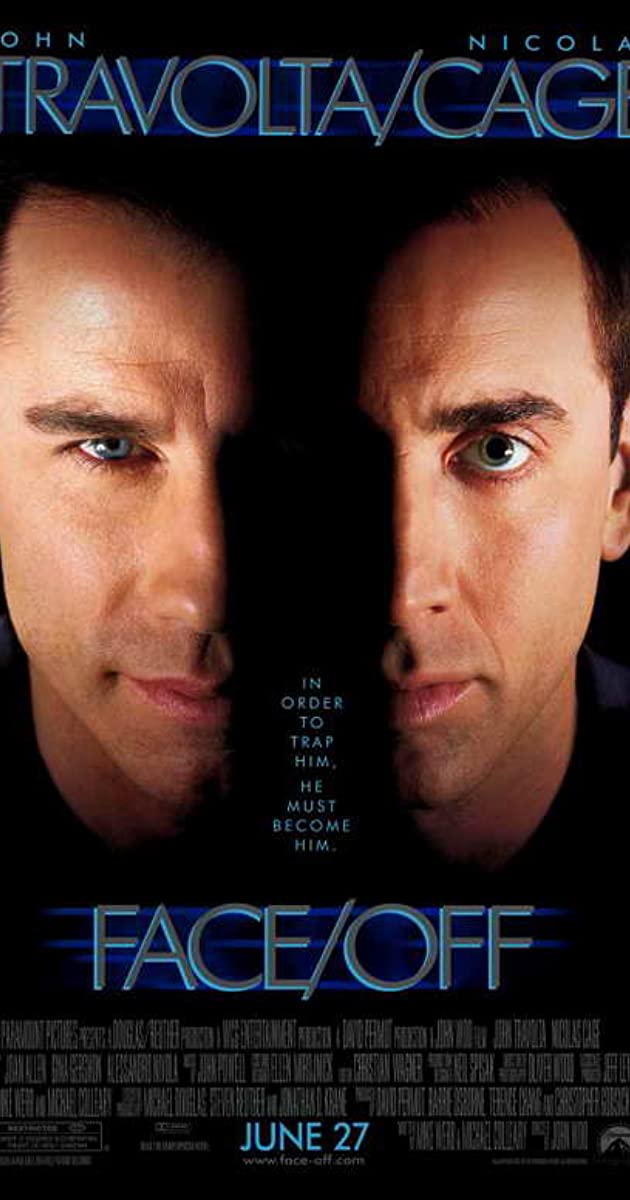“Face/Off” (1997) is bonkers, bananas and over-the-top. It is like a seven-layer chocolate mousse cake: dense, rich, possibly heart-attack inducing — and totally irresistible. The plot centers on FBI Agent Sean Archer, played by John Travolta and then Nicolas Cage (more on this later). Archer’s mission is to destroy Castor Troy, played by Nicolas Cage and then John Travolta, a nasty terrorist without a clear motive besides his own ridiculousness and sadism.
The film jumps the shark in its second scene. At this point, Nicolas Cage, clad in priestly garments, dances and spins his head to Handel’s “Hallelujah” before joining the chorus and screaming with elation while holding onto one of the sopranos. Then, a mere few scenes later, we are treated to a scene where Hummer-driving John Travolta somehow expects to catch Nicolas Cage in a plane — and actually does it. And if that’s not enough, the same scene ends with a chase through a never-ending airport hangar. Yet somehow more craziness awaits the feeble mind. The title becomes literal as Sean Archer has his face removed so he can switch it with Castor Troy’s. Travolta becomes Cage, and Cage becomes Travolta. Don’t worry, it makes sense when you watch it.
This is ultimately a tale of obsession; each man exists solely to bring the other down. And as such the highlights of the movie (assuming you don’t view the whole film as one giant highlight for cinema) are seeing these two men face off against each other, each in the wrong body.
In general, filmmakers put ridiculous elements in a realistic context, thereby making the crazy seem real. But what if the movie’s entire world is totally bonkers? What if John Travolta and Nicolas Cage, Hollywood’s two hammiest leading men, are the anchors of reality in your film? Just throw in director John Woo, a man who leans into this craziness with remarkable glee, and you get something incredible.
“Face/Off” has much in common with the Baroque masterworks of yore. Those pieces dealt with saints ascending to heaven, powerful religious conversions and mundane yet intense domestic scenes. “Face/Off” doesn’t deal with those things per se, but it does pose serious moral questions like those old artworks did. Except instead of showing Saul’s conversion on the road to Damascus, John Woo constructs a film where the audience is asked: What makes a man? His soul? His face? His being? The film is heavy on religious symbolism: Doves are omnipresent and the climax takes place in a church hall. Everything is overly gilded, overly complex and overly done. And it is still beautiful.
“Face/Off” sums up why so many love movies: great action, strong performances, intriguing ideas and a bold cinematic vision. I hope Hollywood realizes this and makes more films in this vein once theaters reopen. But, in lieu of big budget releases, this classic will more than quench your thirst for grand cinematic entertainment on an over-the-top scale.
Contact Mark Huerta at huertam ‘at’ stanford.edu.
